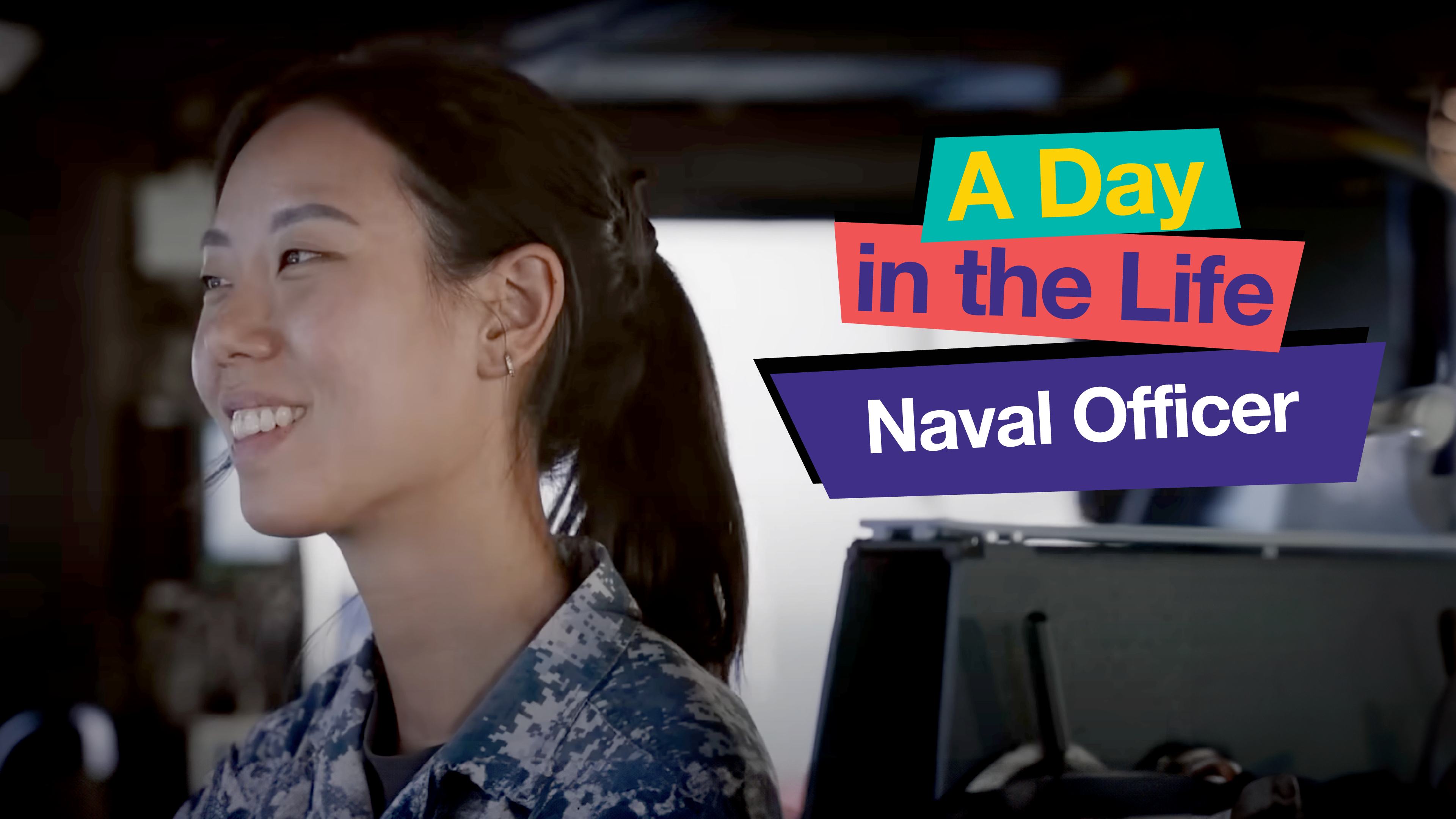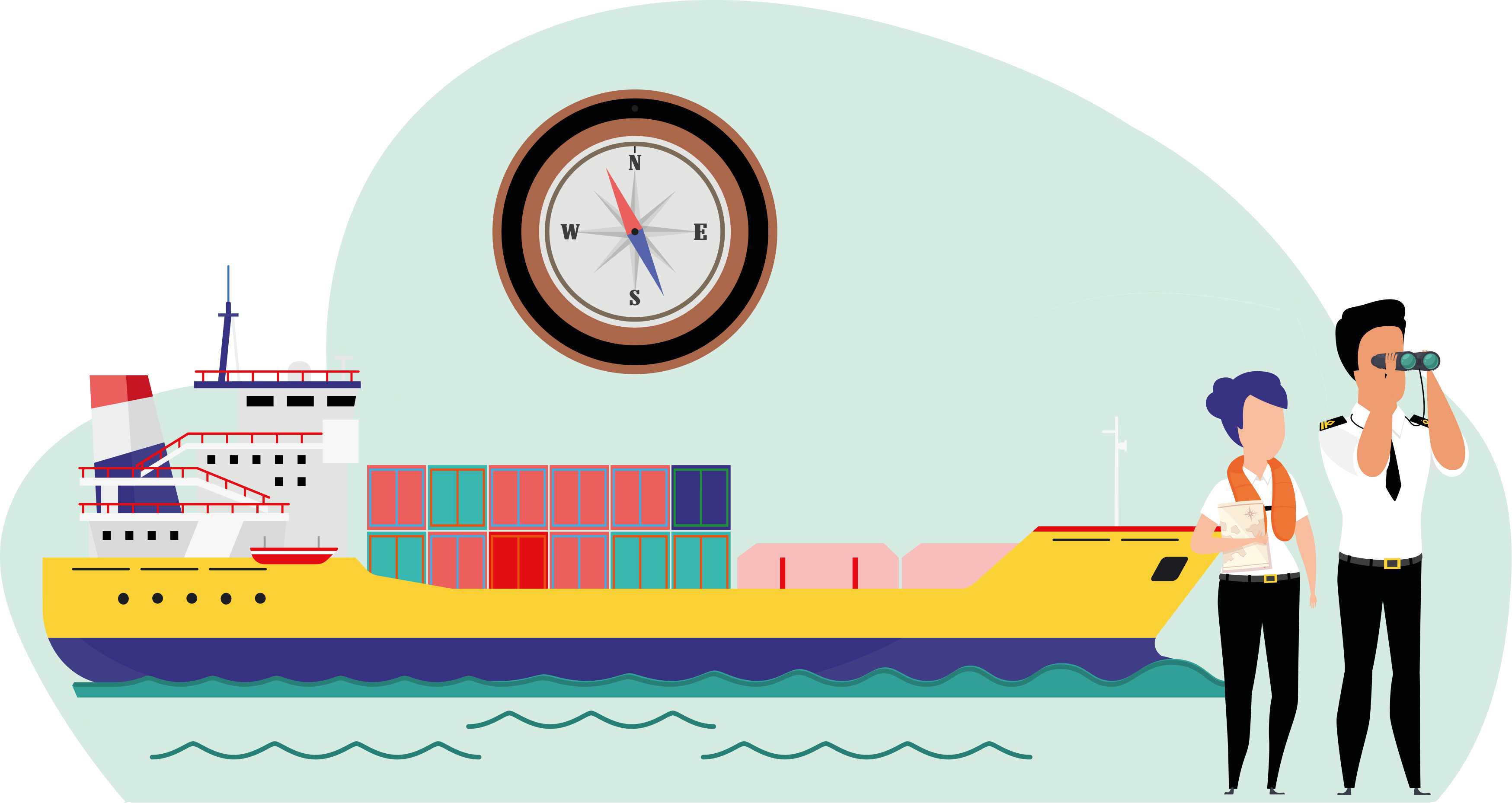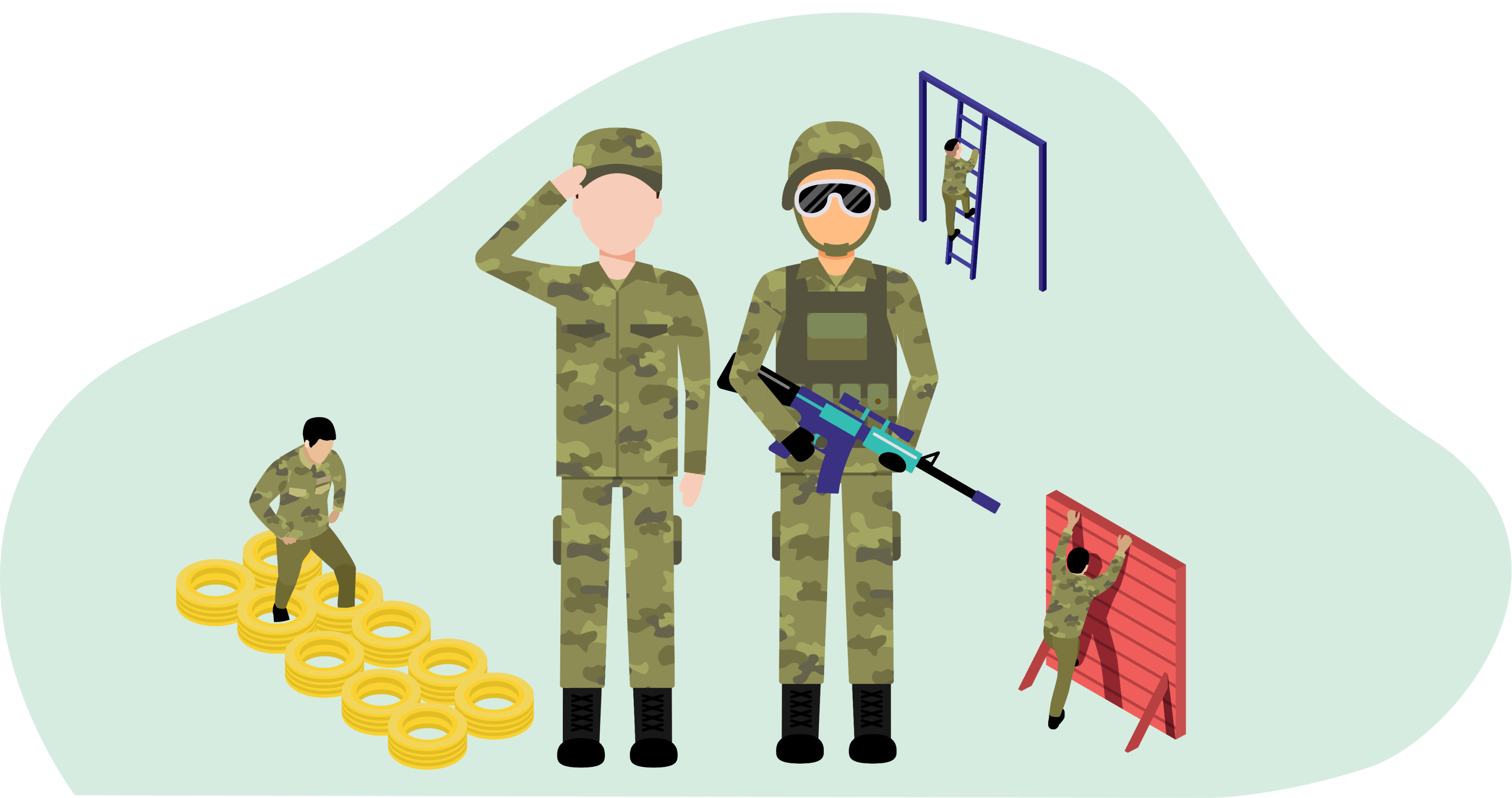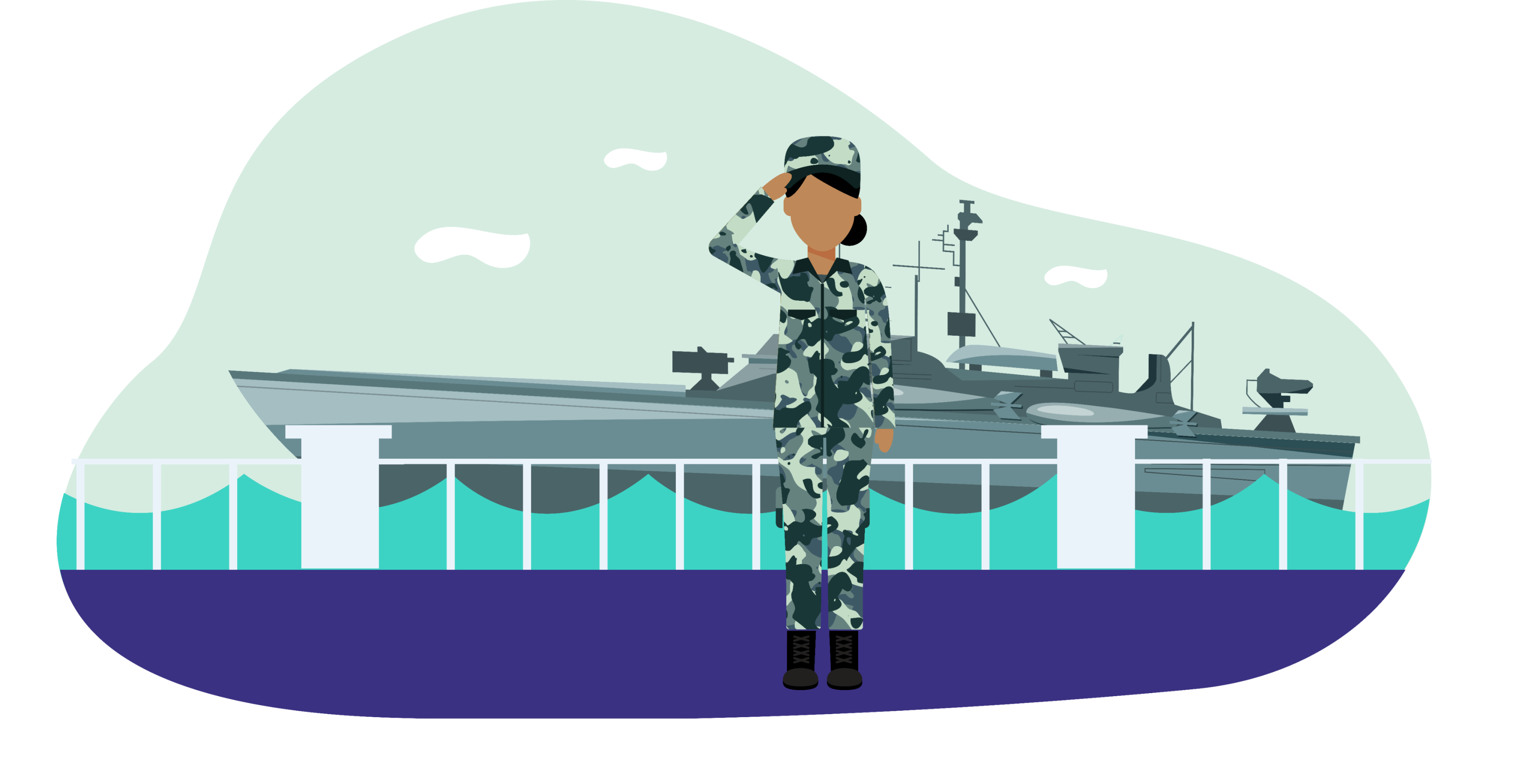
Naval Officers safeguard our country by protecting our waters from any unidentified threats.
Naval Officer Job Description
- Command naval assets such as submarines, warships, and naval aircraft.
- Protect sea lanes, deterring sea robberies and possible terrorist threats.
- Work with foreign navies in coordinated patrols to defend against pirates.
- Participate in overseas exercises and missions.
- Take part in naval warfare.
Note
Additional allowances are provided for Naval Officers. For example, the diving allowance goes from $700 to $1000.
What you should know about Naval Officer jobs in Singapore
Nature of Work
Your role entails commanding and operating naval vessels, ensuring Maritime security, and safeguarding national interests on the high seas.Key Advice
You should be emotionally strong because Naval Officers will have to work evenings, weekends and holidays and be away from home for long periods of time.-
Entry RequirementsEntry Requirements
- Minimally a diploma, A-Level or an IB qualification is needed.
- You have to be medically fit with a PES Status of A or B and have normal colour vision.
- As you may be spending long hours at sea, prepare to face seasickness.
-
Possible PathwayPossible Pathway
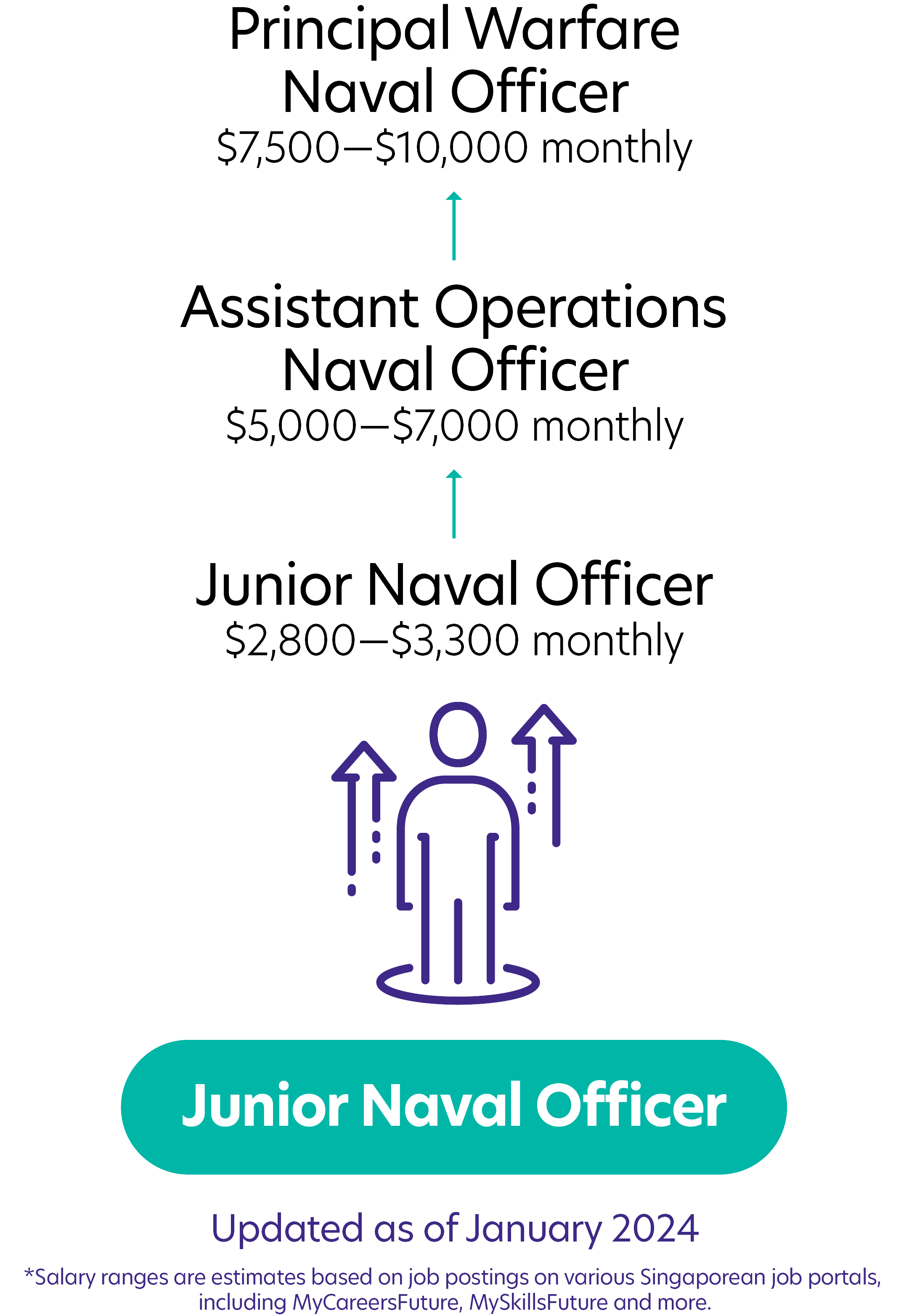
Skills you may need to pursue a Naval Officer career in Singapore
Sea Navigation
Proficient in Marine Science for precise routes and Maritime safety.Weapon and System Operation
Skilled in the effective operation and management of advanced weaponry for combat readiness.War Strategisation
Devise strategic plans and tactics for naval warfare, ensuring effective execution in combat scenarios.Collaboration
Work with diverse teams for cooperation and synergy to achieve common naval objectives.Communication
Demonstrates clear communication to convey orders, information, and strategies within the naval command structure.Decision Making
Make timely decisions under high-pressure situations to ensure the safety and success of naval operations.
“We are a dedicated group of people who tirelessly patrol the waters day and night.”
CPT Doreen Kwek, Assistant Operations Officer
Explore Other Programmes
Browse AllYou have bookmarked your first item!
Find it in My Discoveries with insights on your interests!

